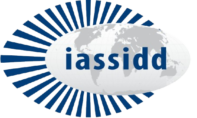Keynote 9
"It takes a Village: Reflections on the stories we tell, and how they expand the horizons of research and practice"

Panel Host: Marjorie Aunos
Marjorie Aunos, Ph.D. is a psychologist, researcher, speaker and disability advocate from Montreal, Canada. She is the Chair of the Parenting and Parents with Intellectual and Developmental Disabilities Special Interest Group (SIRG) of IASSIDD. Her research interests are geared to inform services on how to be more inclusive with women and mothers with disabilities, some of whom have lived intimate partner violence or systemic violence. In 2012, while at the peak of her career in Parenting and Disability, she sustained a Spinal Cord Injury in a car accident. Mother to a 16-months old at the time, the accident and subsequent injury gave her an interesting perspective on parenting.Marjorie believes that focusing on our strengths of character can lead to living a fulfilling life. With her family she learned to be a solution-finder to make her world more accessible. As a Disability Advocate, she speaks to educators and professionals about embracing change, social justice and inclusion and our responsibility to support our communities to enhance everyone’s resilience. Marjorie is author of Mom on Wheels: The Power of Purpose as a Parent with Paraplegia, and a contributing author to We Got This: Essays By Disabled Parents. Her TEDx talk “What we can learn from parents with disabilities” has over 500 000 views.

Panel: Laura Pacheco
Laura Pacheco, MSW, PhD is a disabled assistant professor in the School of Social Work at Memorial University in Newfoundland and Labrador and an adjunct professor at McGill University School of Social Work. Laura has over a decade of experience as a social worker and researcher in the field of parents and parenting with an intellectual disability. Her research focuses on reproductive justice and mothering with a disability, the intersection of parenting with an intellectual disability and the child welfare system, structural and intimate partner violence against women with disabilities, intersecting identities and social justice, aging and neurodiversity, critically reflective and relational practice, narrative methodologies and community-based participatory research.

Panel: Dr Susan Colling
Dr Susan Collings is a Senior Research Fellow at the Transforming early Education and Child Health (‘TeEACh’) Research Centre at Western Sydney University in Australia. Before embarking on an academic career, Susan spent many years in the community services sector working with children and families with disability. As a sociologist, Susan draws on ecological and life span approaches to address social inequalities and improve service interventions. Her participatory and arts-based research collaborations with young people, families and the services who support them have improved practices in areas that include disability planning, birth family contact, family-led decision making and parenting capacity assessment. Susan has established an international reputation for her research with parents with intellectual disability and their children and is an executive member of the IASSIDD Special Interest Research Group on Parents and Parenting with Intellectual Disability. She is also a founding member of the National Advocacy Collective, an Australian group formed in 2022 to promote the rights of parents with intellectual disability and their children to ethical treatment and adapted parenting support. Susan lives on the unceded lands of the Wadi Wadi people of the Dharawal nation in Wollongong, where the mountains meet the sea.

Panel: Tommie Forslund
Tommie Forslund, PhD, is associate professor at the Department of Psychology, Stockholm University, and at SUF knowledge center, Region Uppsala, Sweden. His research focuses on families headed by parents with intellectual disabilities and examine caregiving behavior, child development, factors conveying resilience and risk, and caregiving-based interventions. Research topics include maternal sensitivity, child attachment security, maternal exposure to abuse and trauma, and professional support. He also has a longstanding interest in attachment theory. He has published two books and coordinated the work on an internal consensus statement.
